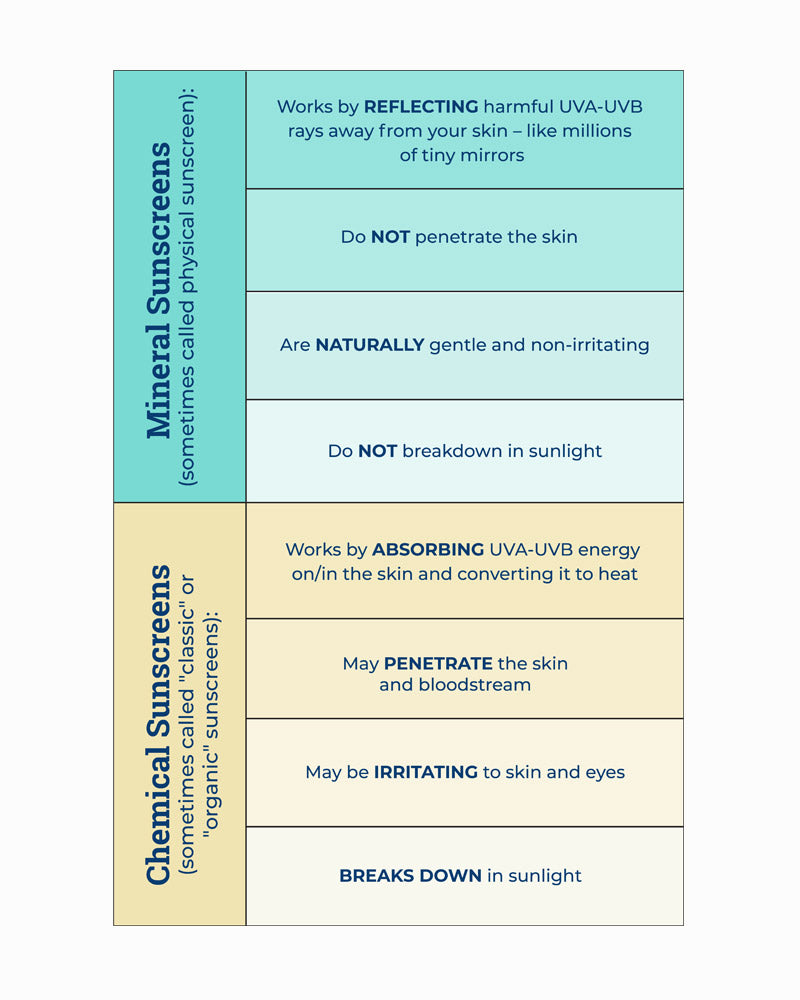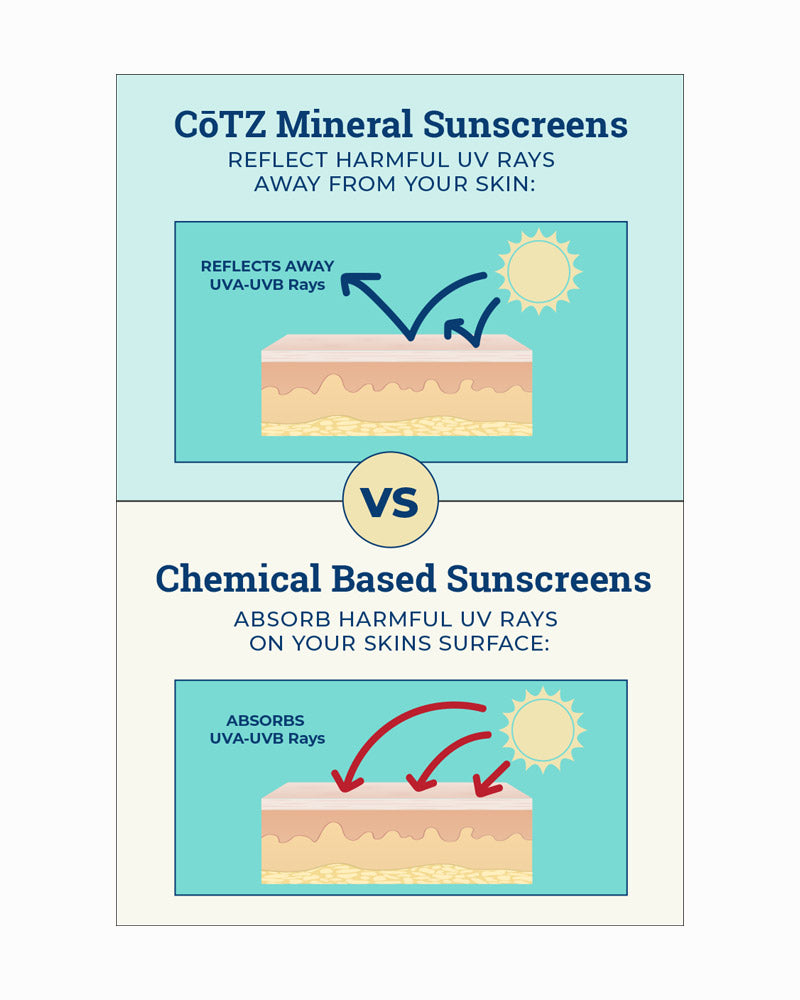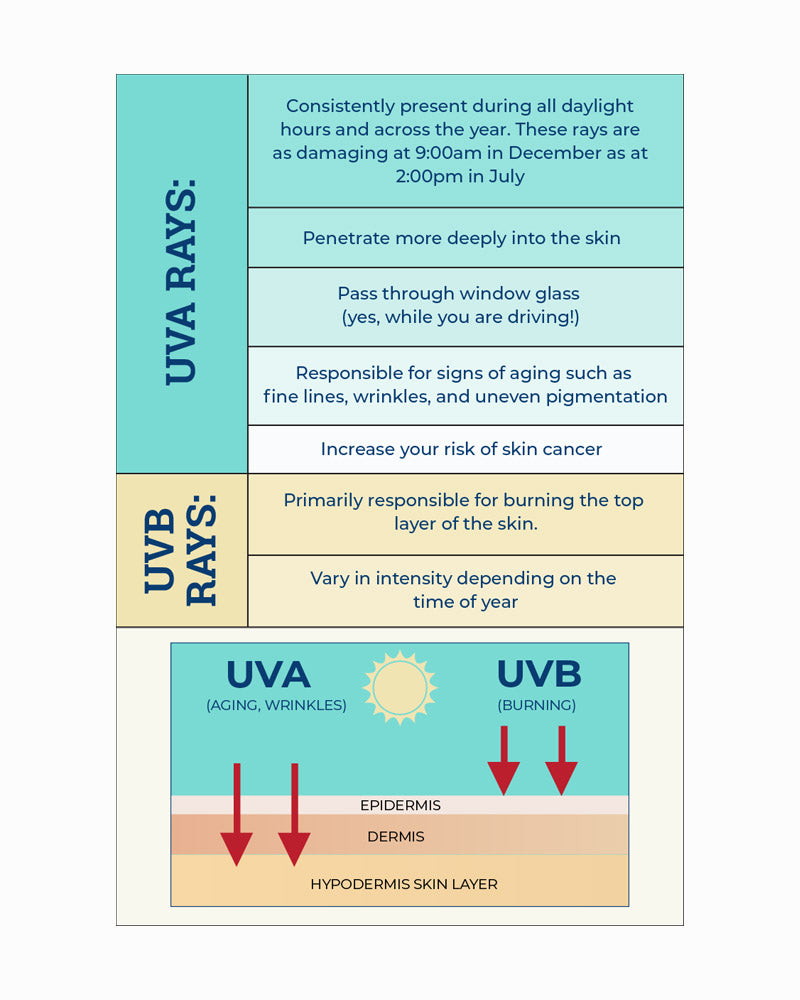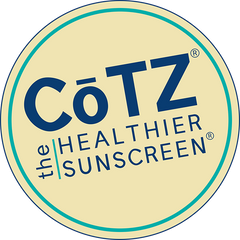PROTECT YOUR SKIN WITH CōTZ
Mineral Sunscreens That Work
At CōTZ, we’re redefining sun protection with science designed for your active lifestyle. Our sunscreens feature two powerhouse ingredients—Zinc Oxide and Titanium Dioxide—that work like tiny mirrors, reflecting harmful UVA and UVB rays away from your skin.
Unlike chemical sunscreens that absorb into your skin and can lead to irritation, CōTZ’s mineral-based formulas sit on the surface, forming a protective barrier without compromising your skin’s health. Plus, our formulas are photostable, meaning they don’t break down in sunlight, ensuring long-lasting, reliable protection that keeps up with you.

Mineral vs Chemical Sunscreens
Zinc Oxide and Titanium Dioxide are the only FDA-approved sunscreen ingredients that are minerals. All other sunscreens are chemical sunscreens.

Reflects vs Absorbs
Mineral sunscreens and chemical
sunscreens work differently.

UVA vs. UVB
The difference between UVA
& UVB rays.



